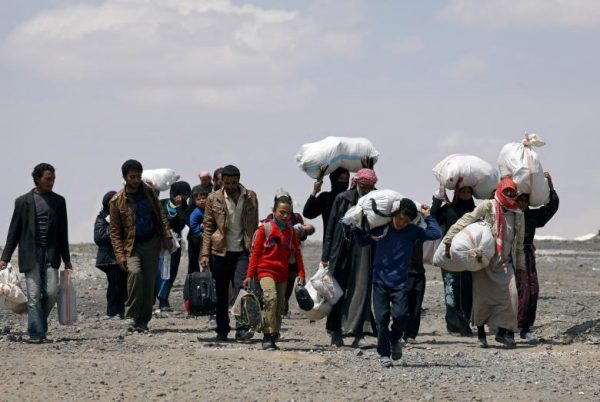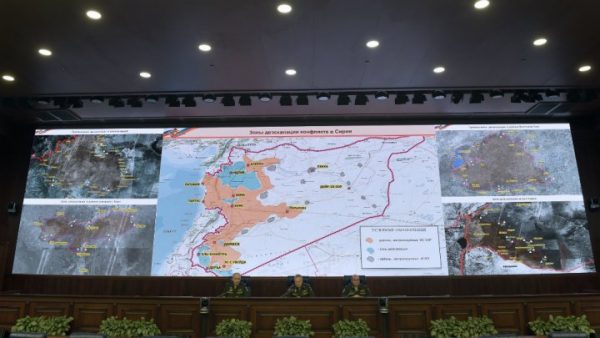
The first and largest of the safety zones in northern Syria will include Idlib province and adjoining districts of Latakia, Aleppo and Hama with a total population of over 1 million, the ministry said.
Iran and Turkey agreed on Thursday to a Russian proposal to establish the de-escalation zones but details remain sketchy.
The zones appear intended to halt conflict in specific areas between government forces and rebels, and would potentially be policed by foreign troops.
The fact that the de-escalation agreement was supported by the United Nations, the United States and Saudi Arabia guaranteed its implementation, the RIA and Interfax news agencies quoted Russian Deputy Defence Minister Alexander Fomin as saying.
In Washington, Pentagon spokesman Captain Jeff Davis declined to comment on the de-escalation zones, telling reporters that the US-led coalition in Syria had not altered operations in the country.
Rebels reject Iran’s role
With the help of Russia and Iranian-backed militias, the Syrian government has gained the military upper hand against rebel groups, including some supported by Turkey, the US and Gulf monarchies.

The main Syrian opposition umbrella group, the High Negotiations Committee (HNC), cautioned against attempts to “partition the country” and rejected Iran’s role as a guarantor.
The Russian-led deal “was concluded without the Syrian people” and “lacks the minimum basics of legitimacy”, the Saudi-based group said in a statement.
Mohammed Rasheed, a spokesman for the Jaish al-Nasr rebel group, said Russia was “merely playing political games” and “making declarations”.
He said rebels doubted Russian or Syrian government warplanes would stop striking rebel-held areas after the deal takes effect.
“This is not the first time,” he added, referring to several mediated ceasefires that have unravelled in Syria’s multi-sided conflict.
“As long as the jets are bombing civilians, then there are no signs of any ceasefire,” Rasheed said. “When they stop, then we can work on political solutions.”
(FRANCE 24 with REUTERS)

Leave a Reply to vs Cancel reply
You must be logged in to post a comment.